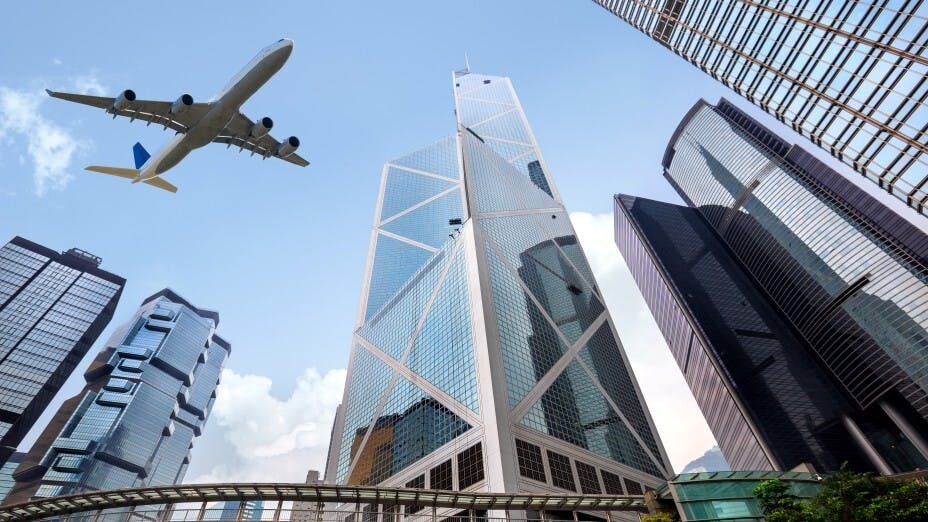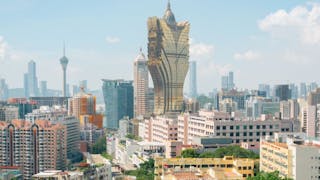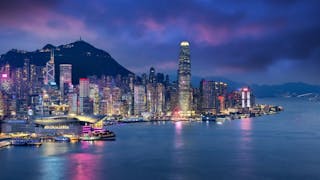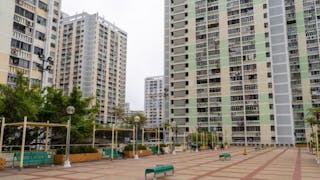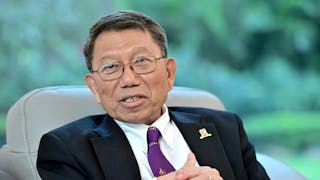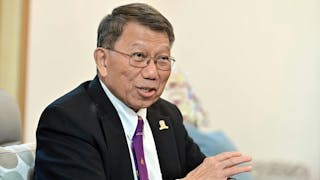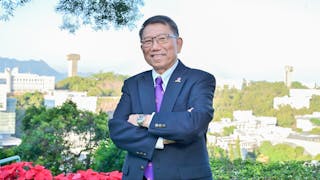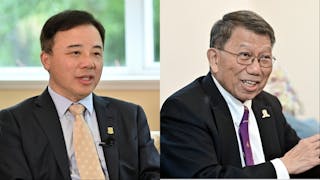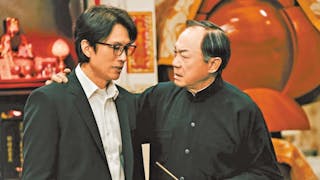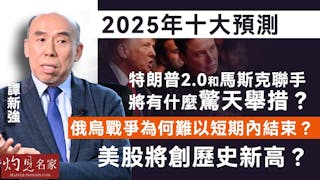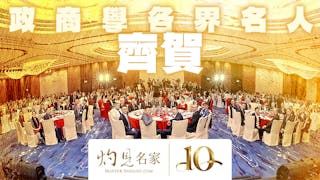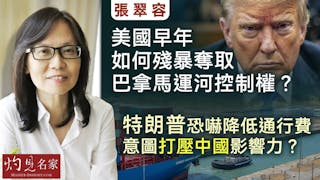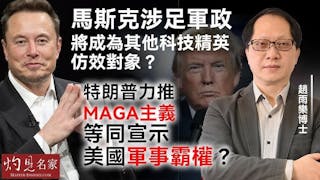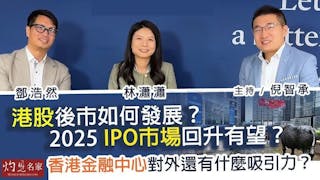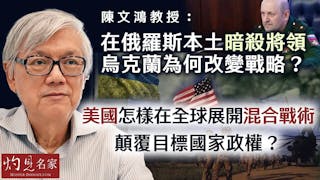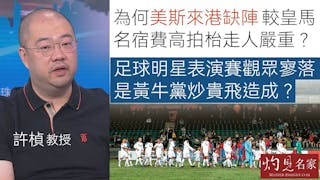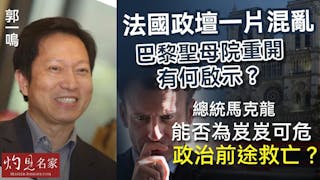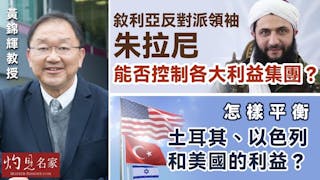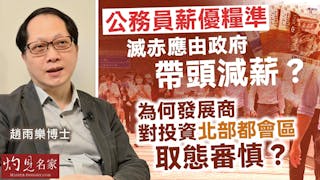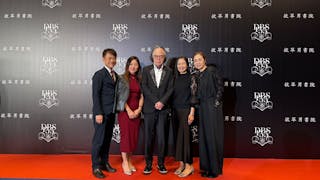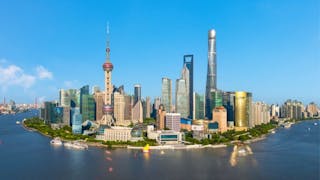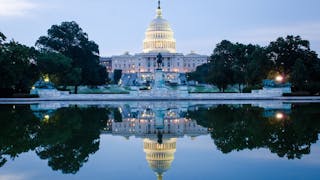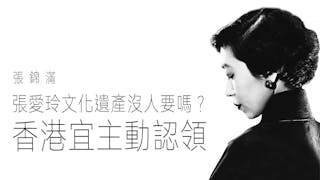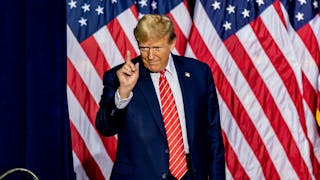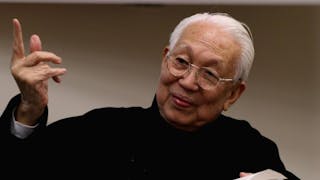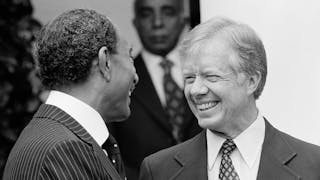香港歷來是中國改革開放的重要基石。如今這顆東方之珠已經掀開新的篇章,為了更好地服務於本地和全國公民,香港必須繼續充當整個中國最開放而多元的國際化大都市。香港的自由經濟、健全普通法管轄權和豪邁的國際精神已經和我們共同見證了這座城市的發展壯大。
然而,當今世界正面臨着前所未有的嚴峻挑戰。地緣政治衝突頻發,緊張局勢不斷,加之社會經濟不平等、氣候變化和疫情大流行,使得全球公眾的不滿情緒不斷滋長。
今天的香港也站在十字路口。
空有堅持到底的決心已經不夠,香港必須積極深化和拓展與世界的接觸。我們不能僅僅發揮連接作用,充當中國和世界之間的橋樑,更要成為變革的燈塔,升華和改進這兩個不同的圈子。只有這樣,香港才能真正發揮出應有的作用,促使中國成長為深受尊重、互聯互通、博愛的全球大國。香港不僅要生存下去,更要自我振興,而國際化將是香港唯一的出路。

拓展中外聯繫 成為變革燈塔
首先,我們要重新思考「國際」在當今時代的內涵。我的大部分職業生涯都在太平洋兩岸度過,自認為是全球化黃金時代的最大受益者。事實上,香港長期以來始終是東西方思想和人才的交匯點,吸引了無數企業家、投資者以及像我一樣的科學家。
我們生活的世界正在走向多極化。在與全球各地的老朋友加強聯繫的同時,我們還要建立一個更強大、更廣泛的海外新朋友網路。這樣的全球網路不僅能為我們帶來貿易和金融服務,還將幫助我們與學術界建立全球聯繫,從而推動香港的創新。
東盟是當今世界增長最快的貿易同盟,而且有望成為全球第四大經濟體。香港擁有高度一體化的先進基礎設施、強大的法治體系和專業服務,更有大量優秀人才作為後盾。作為條件得天獨厚的亞洲城市,香港完全有能力成為連接東南亞和東北亞的樞紐:既能為東南亞企業進駐中國市場提供立足點,也能為中國資本在東盟獲得雙贏創新提供支援。
在中國和海灣國家實施大規模綠色轉型、開展數據型公益創投和再工業化的進程中,香港應抓住時機,引領創辦合資企業。 歐盟各國以共同的價值觀為基石,實施真正的跨民族大團結,長期以來一直是香港在全球社區最堅定的朋友之一。我們應該深化香港與歐盟的文化協同與交流,擴大和深化從人工智慧到透明治理等各個領域的學術合作。 香港應該利用當前時機,條理清晰、全面深入地思索中國需要什麼,我們又能提供什麼。
香港是中國改革的試驗場
其次,近期呼聲較高的大灣區一體化建設為香港翻開了新的篇章,大灣區建設將與香港的國際化發展齊頭並進。 長期以來,香港始終是中國進行體制和監管改革的試驗場。我們一定要帶領和推動大灣區的發展,而不是僅僅融入大灣區。
在遵守本國法律和基線的同時,我們還要保持住在全球範圍內都極受尊重的、極具競爭力的人力資本,維持有吸引力的低稅率和獨特的資本主義經濟體系,繼續開展高水準的學術開放,引導富有活力的討論,以期為大灣區的繁榮和發展做出有意義的貢獻。
不尊重「一國」,就不存在「兩制」。同樣,正是「兩制」之間的有機區別從整體上維護了「一國」的利益。大灣區正在從製造業和出口導向型經濟轉變為技術、創新和高技能服務導向型大都市,香港也要加快步伐,吸引全球頂級人才。從生物醫學、能源技術到元宇宙,香港正在多個領域利用國際資本推動本地的資本密集型研發,在這個過程中,我們必須堅守對問責制和專業的堅定承諾。
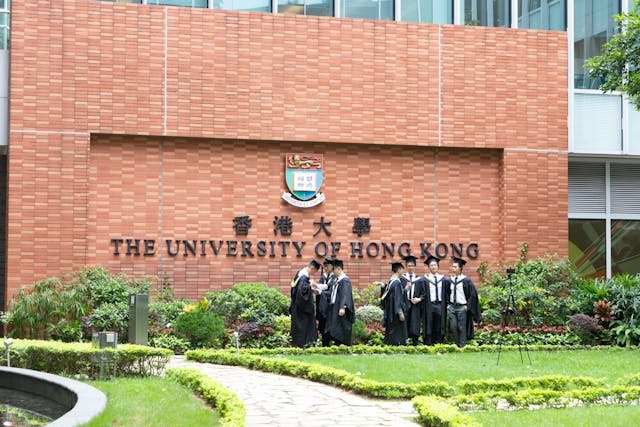
教育體系須應對全球挑戰
第三,在這個日新月異的時代,香港的教育體系必須注重將學生培養成為當代的先驅和未來的領導者。貿易和金融固然重要,但絕不是全球化進程的全部。我們要引領時代,應對全人類面臨的全球挑戰。為此,香港大學新建了10家研究所,在全球減貧、能源科學和生物醫學工程等多個領域從事戰略性、多學科研究。在這個過程中,我們還應努力培養學生的軟技能,讓他們既擅長辯論和發表公開演講,也能夠在受約束的環境下進行靈活的橫向思考。
作為教育家和學術領袖,我和港大的多位傑出同事都以培養一屆又一屆的優秀人才為己任,這些人才將引領香港和中國其他地區的發展。從本質上說,教育是一個對話的過程。教師指導學生,也在向學生學習,二者相輔相成。 同樣的,前輩指導新秀,也在向新秀學習。在港大,我們仍然可以圍繞與所有人都息息相關的重要話題,以成熟理性和相互尊重的態度開展對話,這一點非常重要。
周圍世界正在以前所未有的速度發生變化。我們也要擁有改變的勇氣。不要忘記,香港的成功秘訣從來都是這座城市與生俱來的國際主義。
For itself and China, Hong Kong’s only recipe for success is to be a truly international city
Hong Kong has historically been a key cornerstone to China’s reform and opening-up. As the city turns a new leaf, for it to serve its citizens and the rest of its own country at the same time, it must remain the most international, open, and pluralistic city on Chinese soil. Indeed, our distinctive mixture of substantial economic freedoms, robust common law jurisdiction, and cosmopolitan ethos, has seen this city go from strength to strength.
Yet the world we live in today is experiencing an unprecedented intersection of challenges. Geopolitical conflicts and tensions, socioeconomic inequalities, and existential risks such as climate change and pandemics, have contributed towards growing discontents across the world.
Hong Kong, too, stands at a crossroads today.
Staying the course is no longer sufficient. Hong Kong must proactively deepen and broaden its engagement with the world at large. We should not serve merely as a bridge connecting two circles – China, and the rest of the world. Instead, we must strive towards becoming a beacon of transformation that sublimates and elevates both circles. Only then, can Hong Kong play its part in facilitating China’s journey towards becoming a truly respected, interconnected, and compassionate global power. In order for Hong Kong to not only survive, but revitalise itself, the only path forward lies in internationalization.
First, we must rethink what the “international” means in this day and age. I spent a majority of my career straddling both sides of the Pacific. I count myself a foremost beneficiary of a golden era of globalization. Indeed, this city has long served as a confluence of ideas and talents between East and West, whether it be for entrepreneurs, investors, or scientists such as myself.
We live in an increasingly multipolar world. We must strengthen our global links to old partners, yet must also build a stronger and more expansive network of new friends abroad. Global network not only means the trade, financial services, but also a global link to the academic community to advance innovation in Hong Kong.
ASEAN is currently the fastest-growing trade bloc in the world, and on track to become its fourth-largest economy. As an Asian city with highly integrated and advanced infrastructure, robust rule of law and professional services, and an exceptionally talented workforce, we are well placed to serve as the hub conjoining Southeast and Northeast Asia – providing a foothold for Southeast Asian businesses into China, but also Chinese capital in supporting win-win innovation in ASEAN.
Hong Kong can play host to Sino-Gulf joint ventures across both parties’ large-scale green transitions, data-informed venture philanthropy, and re-industrialisation. The European Union, a community built around firm commitment to shared values and true trans-national solidarity, have long been amongst our city’s firmest friends in the world. With them, we must deepen our cultural synergy and exchanges, as well as broaden the depths of academic collaboration in fields ranging from artificial intelligence to transparent governance. It is high time that Hong Kong thought more progressively and comprehensively about China’s needs, and what we can bring to the table.
Second, the recent call of integration with the GBA has opened a new chapter for the city, which goes hand-in-hand with Hong Kong’s internalisation. Hong Kong has long served China as an experimental ground for institutional and regulatory reforms. We must seek to lead and drive developments in the GBA, as opposed to merely assimilate into the region.
We must maintain our globally respected and competitive human capital, attractive low-tax rates and distinctive capitalist economic system, high levels of academic openness and robust discussion, whilst abiding by the laws and baselines of our own country, in order to contribute meaningfully towards the future prosperity and flourishing of the GBA.
There can be no two systems without respect for one country. Similarly, it is the organic distinctions between the two systems that come to holistically advance the interests of the one country. As the GBA transitions away from being a manufacturing- and export-driven economy into a technology, innovation, and high-skilled service-driven megapolis, Hong Kong must step up to attract top-class talents from across the world. It must also maintain an unwavering commitment to accountability and professionalism as it draws upon international capital in propelling capital-intensive research and development in the region – across fields ranging from biomedical science, energy technology to the Metaverse.
Third, in embracing this era of great flux, our education system must empower our students to be the pioneers of today, and the leaders of tomorrow. Globalisation is by no means just about trade and finance, as important as they may be. We must lead the era in tackling global challenges that the human race faces. This is why HKU is establishing ten new institutes pursuing strategic and multidisciplinary research in areas ranging from global poverty mitigation, energy science, to biomedical engineering. In so doing, we should strive to equip our students with soft skills – from debating and public speaking, to the ability to think laterally and flexibly under constraint.
As an educator and academic leader, it falls upon me and my many stellar colleagues at HKU, to nurture the many generations of talents that shall steer forward Hong Kong, as well as the rest of China. Education is an inherently dialogical process. Teachers learn from students as much as the other way round. Newcomers learn from old hands, and the converse also holds true. HKU must remain a place where any and all rational, respectful dialogue can be held, on topics of the utmost importance to us all.
The world around us is changing at an unprecedented pace. We, too, must have the courage to change, without forgetting that Hong Kong’s recipe for success, is its inherent internationalism.
原刊於香港大學中國商業學院微信平台,本社獲作者授權轉載。



